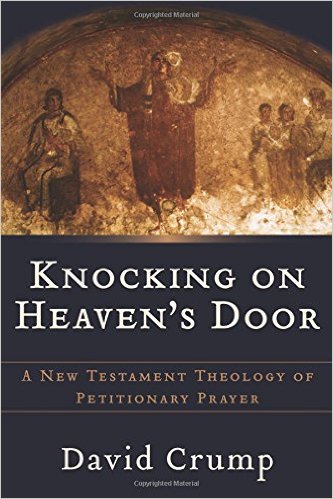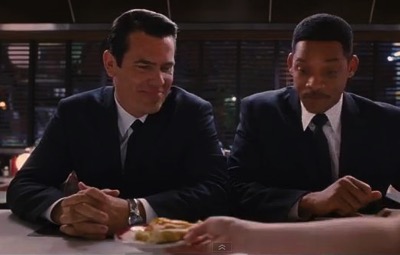[This is a post in our ongoing series looking at the themes raised by David Crump in his book Knocking on Heaven’s Door: A New Testament Theology of Petitionary Prayer. We began this series here.]
❦
Prayer is a mystery. How else can we explain the petition of the Lord’s Prayer, “Thy will be done.” How is that a prayer? Is that not like praying that water be wet or that a sphere be round? Is not the will of God something by nature and definition that is done whether we seek it or not? Some find they are able to answer these questions easily. I don’t. How do prayer and God’s sovereignty exist in the same universe? It is the question that troubles many who find their way to their knees. But to pray within this tension is what we are called to do, even as the Lord’s Prayer makes clear.
Crump makes the necessary point that the first three petitions of the Lord’s Prayer all are making somewhat the same point. To pray that God’s name be honored is to pray for his kingdom to be manifest in all the earth, which is to pray for his will to be done, and all of this on earth as it is in heaven. But does this imply that his will is not being done? Does it imply that we can, by our prayers, hasten the coming of his will and kingdom?
Those are complicated questions which find some de-tanglement when we understand that this prayer for God’s will was central to Jesus’ impassioned prayer in Gethsemane. To pray for his kingdom and will to come and be done is in many respects to pray that our hearts be submitted to him, that our desires be his desires, that our personal impulses be submitted to his greater vision.
And yet, I’m not completely satisfied by this. It does not completely give me rest to suggest that when I am praying, I am simply putting myself in a place where my heart and passions might be changed and molded. When I see brokenness and injustice and anguish among God’s people, I pray that HIS KINGDOM come. I am praying that he would bring more into the ‘already’ the ‘not yet’ realities that will dry those tears and heal those broken hearts. I pray that his will be done because in many respects is is NOT being done yet, no matter what we make of the mystery of divine providence. All is not as it should be, and so I pray that God would hasten the day when it is. And I am encouraged to pray that, and to pray it with vigor.
Whether Crump would embrace the above paragraph or not I can only guess. I sense that he would. We must avoid every sense that God’s responsiveness is only apparent. Those who suggest that “God ordains the means as well as the ends…” are, he says, giving a theological answer aimed at intellectual satisfaction at great cost to the biblical text. And Crump’s desire to always lean on the text even when our minds are left reeling is part of what I appreciate about his approach and his honesty.
And I appreciate his heart, as it is expressed in this summary of the first three Lord’s Prayer petitions:
“In these three requests, we acknowledge that even as we pray for miracles with a faith that moves mountains, we would gladly exchange the most astounding miracle for the smallest mundane moment, if that mundane will bring greater glory to our Father who is in heaven.” (page 131)
That is where I want my heart to be.
❦

 But is prayer a weakness because it is hard and unnatural for us, or do we find ourselves weak in it because of a misconception of what it is to be? If one trains to be a painter using a faulty and impossible standard, even though he may be good he will judge himself to be weak because he is using erroneous evaluative criteria. Perhaps we are overly critical of our practice of prayer because we are building our critique upon a false model of prayer.
But is prayer a weakness because it is hard and unnatural for us, or do we find ourselves weak in it because of a misconception of what it is to be? If one trains to be a painter using a faulty and impossible standard, even though he may be good he will judge himself to be weak because he is using erroneous evaluative criteria. Perhaps we are overly critical of our practice of prayer because we are building our critique upon a false model of prayer. So when I passed a man in my neighborhood the other day who was walking his dogs, I said, “What you are doing looks like a lot more fun than what I’m doing.”
So when I passed a man in my neighborhood the other day who was walking his dogs, I said, “What you are doing looks like a lot more fun than what I’m doing.” In the movie
In the movie